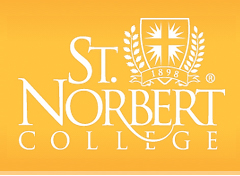Racism, White Privilege, and Thomas Merton on Transformative Spirituality and Justice
Location
Old St. Joseph Church, St. Norbert College
Start Date
10-26-2017 7:00 PM
Description
Daniel Horan explores the work of Trappist monk and mystic Thomas Merton who is best known for his writings on the spiritual life. But as has been well documented, Merton’s own experience of ongoing conversion led to a transformative experience that is oftentimes called his “turning to the world” beyond that of the interior life of prayer in the late 1950s and continuing until his death in 1968. While Merton’s writing and correspondence during this period of his life on themes related to non-violence and war, interreligious dialogue and ecumenism have garnered scholarly interest in recent decades, less attention has been paid to the monk’s writings on structural racism and white supremacy, particularly as these realities are related to one’s spirituality and life of faith. This lecture explores the distinctive contributions Merton makes to Christian spirituality from the perspective of his writings on structural racism and white supremacy in the United States.
 COinS
COinS
Racism, White Privilege, and Thomas Merton on Transformative Spirituality and Justice
Old St. Joseph Church, St. Norbert College
Daniel Horan explores the work of Trappist monk and mystic Thomas Merton who is best known for his writings on the spiritual life. But as has been well documented, Merton’s own experience of ongoing conversion led to a transformative experience that is oftentimes called his “turning to the world” beyond that of the interior life of prayer in the late 1950s and continuing until his death in 1968. While Merton’s writing and correspondence during this period of his life on themes related to non-violence and war, interreligious dialogue and ecumenism have garnered scholarly interest in recent decades, less attention has been paid to the monk’s writings on structural racism and white supremacy, particularly as these realities are related to one’s spirituality and life of faith. This lecture explores the distinctive contributions Merton makes to Christian spirituality from the perspective of his writings on structural racism and white supremacy in the United States.

